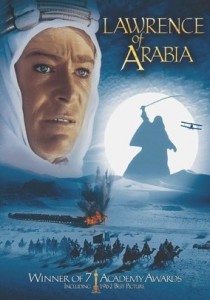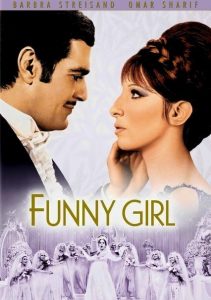Doctor Zhivago-1965
Director David Lean
Starring Julie Christie, Omar Sharif, Rod Steiger
Top 250 Films #31
Scott’s Review #42
Reviewed June 18, 2014
Grade: A
Doctor Zhivago (1965) is a great film to watch on a cold night or throughout the crisp winter or holiday season.
The film is a classic masterpiece directed by the talented David Lean (Lawrence of Arabia, 1962, A Passage to India, 1986), whose perfectionism is evident in his epic films.
Nearly every scene could be a painting, so the cinematography alone is reason enough to become enchanted with art.
Of course, the story is also a goldmine as a sprawling decades-long love story unfolds amid the ravages of the bloody Bolshevik Revolution.
The film is set in the bitter cold of Russia (though all scenes were shot in Spain), and the harshness of the climate and the war combine with a doomed love story set against the backdrop of numerous battles and wartime conditions.
Nearly all sequences are set in winter, and the blustery, icy effects are set against numerous scenes of cozy, candlelit cabins or more extravagant, glowing surroundings.
Viewers must be surrounded by fire, flaming candles, or another form of warmth as a snowstorm or blizzard rages outside for a perfect viewing experience.
A large-screen television or a cinema is simply a must to watch this film, as it is epic on the grandest scale.
Omar Sharif and Julie Christie (a gorgeous star in her day) are cast perfectly as Uri and Lara, young forbidden lovers enthralled with one another but involved with significant others.
The film dissects their initial meeting and their story over the years, experiencing marriages, births, and deaths throughout the ravages of Russia in the early twentieth century.
Despite their affairs, neither is deemed unsympathetic—quite the contrary.
Audiences will fall in love with the pair and become enchanted as they watch their love-tortured adventures unfold.
Sharif and Christie are just magnificent and utterly believable as a couple.
The set pieces are magnificent and flawless in design and detail (my favorite is the Ice Palace).
The cinematography is breathtaking, and the content is remarkably close to the superior novel by Boris Pasternak, evoking a sense of “really being there” in the viewer.
Doctor Zhivago (1965) is a brilliant film, perfect for a snowy winter evening.
Oscar Nominations: 5 wins-Best Picture, Best Director-David Lean, Best Supporting Actor-Tom Courtenay, Best Screenplay Based on Material from Another Medium (won), Best Music Score-Substantially Original (won), Best Art Direction, Color (won), Best Cinematography, Color (won), Best Costume Design, Color (won), Best Film Editing


